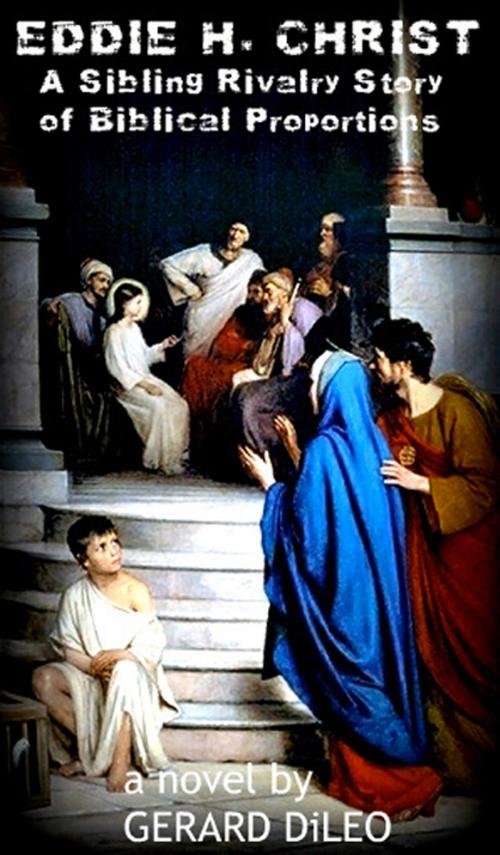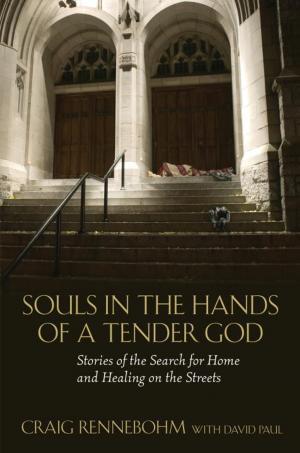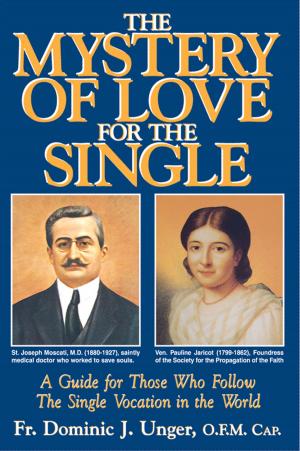| Author: | Gerard M. DiLeo | ISBN: | 9781452491622 |
| Publisher: | Gerard M. DiLeo | Publication: | June 9, 2010 |
| Imprint: | Smashwords Edition | Language: | English |
| Author: | Gerard M. DiLeo |
| ISBN: | 9781452491622 |
| Publisher: | Gerard M. DiLeo |
| Publication: | June 9, 2010 |
| Imprint: | Smashwords Edition |
| Language: | English |
"Eddie H. Christ" is a comical, historically based first-person memoir detailing the sibling rivalry of the fictional "Eddie" with his brother, Jesus, as a metaphor for the acceptance of Christianity. It's setting centers on the ridiculous hypocrisy of the high priests' rationalization for Roman occupation. It is told in anachronicstic first person.
The novel explores true Christianity and demonstrates how the purest Judaism isn't that far from Christianity. It is a comedy because the ludicrous hypocrisy of the times begs an incredulous, laughable reaction from the reader as the characters surf their political frustrations of the time.
How would a sibling rivalry play out between a boy named Edrachus ("Eddie") and his older brother, if this older brother happened to be Jesus Christ?
"Oh, Eddie, why can't you be more like Jesus?"
"What would Jesus do?"
Who could compete with that? Such is the premise that begins Eddie H. Christ, the story of Jesus as told by his bad-ass little brother. The childhood, adolescence, early adulthood, and public life of Jesus are chronicled, according to Eddie, with the unique perspective of a hand-me-down sassiness and a one-upsmanship wit. The absurdities of both the Roman occupation and the over-ritualization by the corrupt Jewish authorities are confronted head-on with Eddie's unique and unorthodox assessments, humourously enriching Jesus' take on each situation.
This book is a comedy that cleverly explores the difficulties of both the common man of the time and the survival of two brothers, one of whom is the long-awaited, but unrecognized Messiah; but a second story unfolds between the lines to explore Eddie's acceptance of his brother, serving as an allegorical acceptance of Christianity in general and the basic Jewish tenets that turn out to be remarkably similar.
Researched meticulously, the book's background of the ancient Middle East provides a rich vehicle for this tale of religious mystery, miracles based on the laws of physics, vascillating Apostles, Roman authorities, Temple politics, corrupt high priests, and the passion of Jesus. Ultimately, it is a book on the family--a family which just happens to be the family of Jesus of Nazareth. Underneath all of the comedy is a quiet reverence for the events that reshaped the world forever. Eddie, our Everyman, is there for it at every step of the way--understanding, misuderstanding, accepting, and denying.
"Eddie H. Christ" is a comical, historically based first-person memoir detailing the sibling rivalry of the fictional "Eddie" with his brother, Jesus, as a metaphor for the acceptance of Christianity. It's setting centers on the ridiculous hypocrisy of the high priests' rationalization for Roman occupation. It is told in anachronicstic first person.
The novel explores true Christianity and demonstrates how the purest Judaism isn't that far from Christianity. It is a comedy because the ludicrous hypocrisy of the times begs an incredulous, laughable reaction from the reader as the characters surf their political frustrations of the time.
How would a sibling rivalry play out between a boy named Edrachus ("Eddie") and his older brother, if this older brother happened to be Jesus Christ?
"Oh, Eddie, why can't you be more like Jesus?"
"What would Jesus do?"
Who could compete with that? Such is the premise that begins Eddie H. Christ, the story of Jesus as told by his bad-ass little brother. The childhood, adolescence, early adulthood, and public life of Jesus are chronicled, according to Eddie, with the unique perspective of a hand-me-down sassiness and a one-upsmanship wit. The absurdities of both the Roman occupation and the over-ritualization by the corrupt Jewish authorities are confronted head-on with Eddie's unique and unorthodox assessments, humourously enriching Jesus' take on each situation.
This book is a comedy that cleverly explores the difficulties of both the common man of the time and the survival of two brothers, one of whom is the long-awaited, but unrecognized Messiah; but a second story unfolds between the lines to explore Eddie's acceptance of his brother, serving as an allegorical acceptance of Christianity in general and the basic Jewish tenets that turn out to be remarkably similar.
Researched meticulously, the book's background of the ancient Middle East provides a rich vehicle for this tale of religious mystery, miracles based on the laws of physics, vascillating Apostles, Roman authorities, Temple politics, corrupt high priests, and the passion of Jesus. Ultimately, it is a book on the family--a family which just happens to be the family of Jesus of Nazareth. Underneath all of the comedy is a quiet reverence for the events that reshaped the world forever. Eddie, our Everyman, is there for it at every step of the way--understanding, misuderstanding, accepting, and denying.















